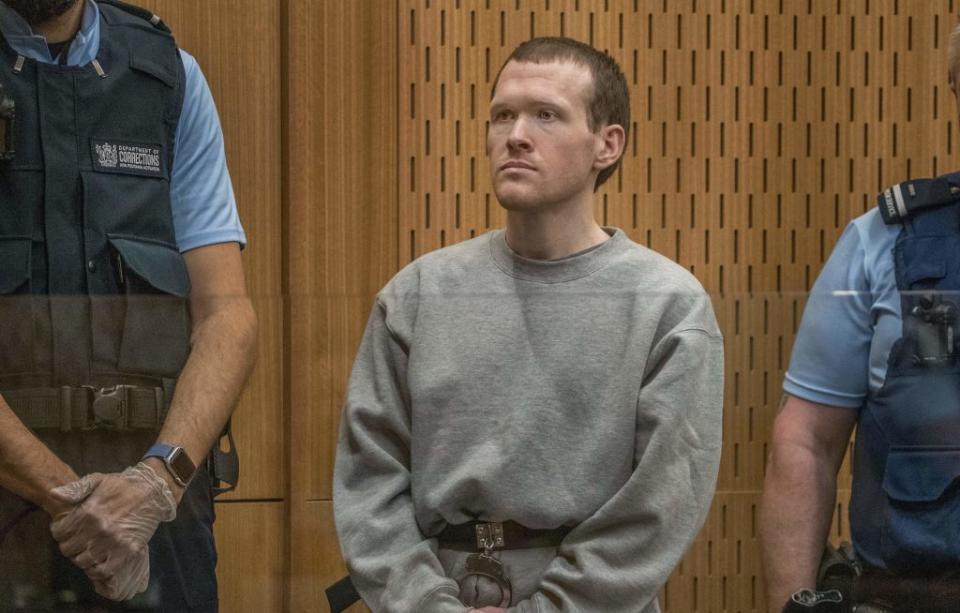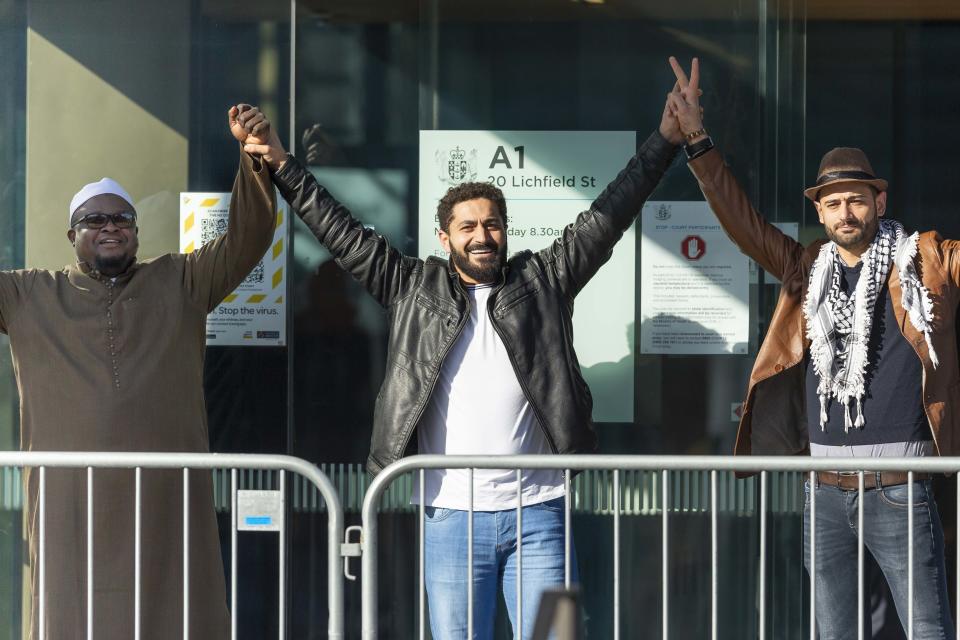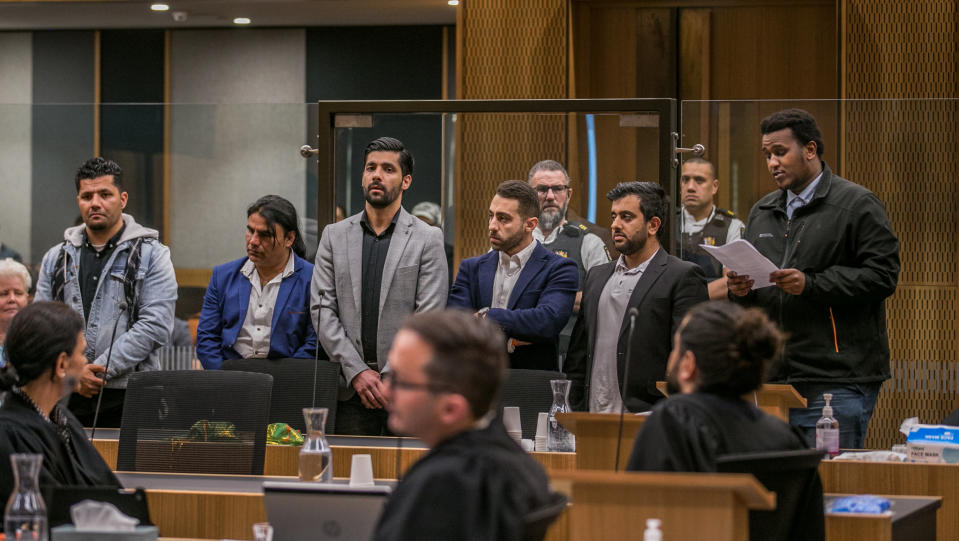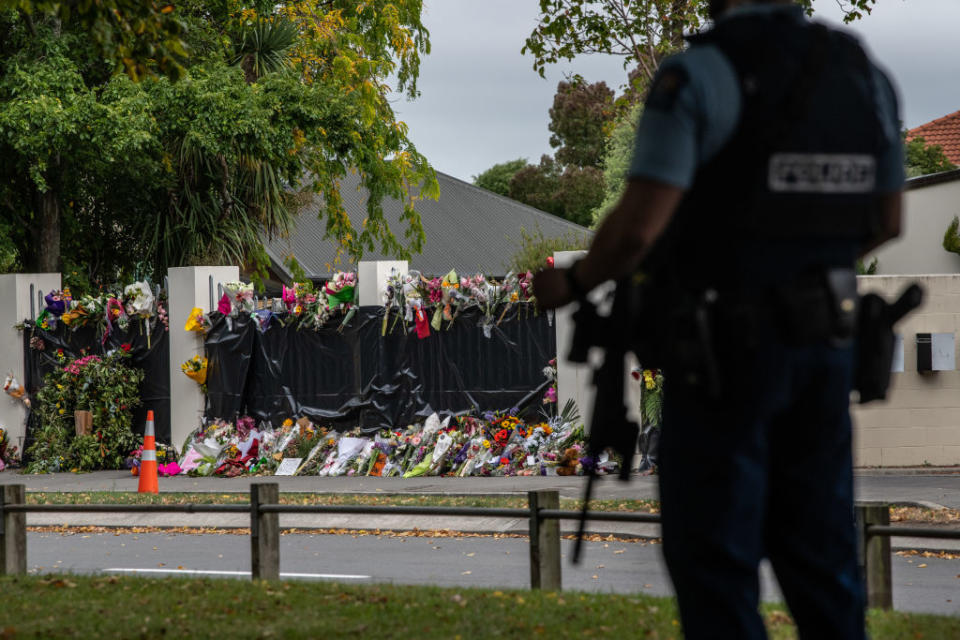New Zealand hands down historic prison sentence for Christchurch shooter
Brenton Tarrant, the Christchurch mosques terrorist, has been sentenced to life in jail without the possibility of parole.
In a New Zealand legal first, the Australian man has been denied the possibility of ever seeking or gaining his freedom after killing 51 people in last year's attack.
For three days at this week's sentencing, Tarrant sat unmoved as a procession of his victims - 91 in all - made powerful and emotionally-charged statements of their loss.
On Thursday, his gaze was fixed on the Crown solicitors who argued for a life sentencing without parole, and Justice Cameron Mander, who agreed to lock him up and to throw away the key.
"If not here, than when?" Justice Mander asked.
"It is difficult to look past the wickedness of each murder ... however you are not only a murderer but a terrorist."

Judge ‘unmoved’ by possibility of rehabilitation
As victims in the public gallery sobbed, Justice Mander took the time to make a verbal tribute to every murdered and wounded person in his sentence.
One widow described herself as "alive but not living".
"Accountability, denouncement, deterrence, and protection of the community must be the court's focus," Justice Mander said.
"No matter how appalling the crime, the potential for rehabilitation must always give a court pause ... but I remain unmoved."
Tarrant was sentenced to life without parole on each of the 51 counts of murder, for 12 years on each of the 40 attempted murder counts, to be served concurrently, and another life sentence for terrorism.
In making his argument, Crown prosecutor Mark Zarifeh drew on Australia's worst mass shooting, the 1996 Port Arthur massacre in Tasmania.
"The enormity of offending in this case is without comparison in New Zealand's criminal history," he began.
Mr Zarifeh said Tarrant displayed "calculated and militaristic determination in carrying out his plan", "expressed disappointment in not having killed more people" with "calculated sadism and depravity".

"Many of those who were shot were on their knees in prayer with their backs to the offender," he said.
"Life without parole is the only proper sentencing option."
‘No thank you’: Tarrant declined to address courtroom
As foreshadowed on Wednesday, Tarrant did not speak at his own sentencing despite opting to represent himself.
He uttered just a smattering of words over the four-day hearing, saying "No, thank you" when Justice Mander gave him one final chance to address the packed courtroom.
His stand-by counsel Philip Hall said Tarrant did not oppose the sentence of life without parole.
Thankfully for his victims, there was little desire to hear from the terrorist.
"He doesn't have the guts (to speak) after being told over and over again what kind of man he is," one victim told AAP.
Another said "we would like to have the last word and thanks to him we will".

Throughout the sentencing, New Zealand's worst mass shooter was a passive presence.
Surrounded by four security guards at all times and clad in a grey fleece tracksuit, he was attentive but meek in the dock.
In the absence of his own submissions, Justice Mander appointed an independent 'amicus curiae', Kerry Cook, to give integrity to the sentencing.
Argument that sentence contravened human rights
Drawing upon private sentencing reports that Tarrant had changed some of his views, Mr Cook made an argument that a no-parole sentence contravened the universality of human rights.
"Offending is not an inherent characteristic … there is hope, albeit faint, for rehabilitation," he said.
"Rehabilitation is constitutionally required in any community that places human dignity as its centrepiece."
Justice Mander dismissed those reports of a change of heart as "uncorroborated, self-serving and a relatively recent phenomenon".
This week, as it has been since the March 15 attack last year, that human dignity was on display from Tarrant's many victims.
For three days in the High Court, they stood metres from the terrorist and bared their souls, crying for lost loved ones, reliving the trauma of being present in their houses of worship during the attacks.
Many say they still have trouble sleeping.

With limited space in the court due to COVID-related social distancing restrictions, victims forfeited their right to having a support person nearby to allow more victims to take seats inside the small courtroom.
They wore or carried white roses on their lapels, carried pictures of dead family members, while one carried a toy panda.
To them, justice was done.
Do you have a story tip? Email: newsroomau@yahoonews.com.
You can also follow us on Facebook, Instagram and Twitter and download the Yahoo News app from the App Store or Google Play.



